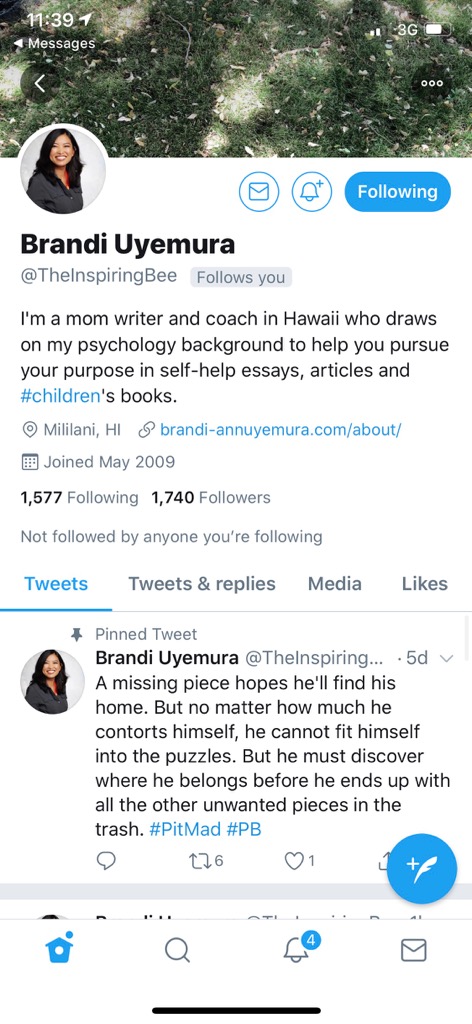 Lately, I’ve been really into all these Twitter writing contests. And learned that while I love a good photo on Instagram, Twitter with it’s purely wordy platform is where it’s at. This could be why I have more Twitter followers and why I’m still figuring out being a writer on Instagram.
Lately, I’ve been really into all these Twitter writing contests. And learned that while I love a good photo on Instagram, Twitter with it’s purely wordy platform is where it’s at. This could be why I have more Twitter followers and why I’m still figuring out being a writer on Instagram.
I’ve also been entering writing contests like crazy.
For months I’ve been pitching, querying and entering. And here’s what I learned.
If you’re new to the entering Twitter and writing contests game, you’ll want to read this.
You need to get your ducks in order way before the deadline.
Sometimes you’ll already have an essay or short story lined up so you have enough time to edit. But don’t be one of those writers who puts together something and hits send a few days or hours before it’s due. You’ll end up wasting your own time and likely money since many of these contests require a fee.
Consider getting feedback for your work.
Take these contests as a legitimate entryway into publications. Even if you’re not a winner, your prose might hit a chord with one of the judges who might ask to publish your work in a future issue of their magazine. If you’re doing a Twitter contest like #PitMad (here’s a calendar in case you want to plan for the rest of the year), writing a pithy captivating tweet may catch the eyes of your dream agent or editor. Think about that before you dash off a few words with a # of the contest to the twittersphere.
You’ll get addicted to knowing the results.
If you’re doing any Twitter writing contests, then you’ll find that even if you’ve lined up your tweets on a Twitter scheduler like TweetDeck, you still won’t be able to distract yourself long enough to take a peek at Twitter to see if you got any likes yet.
You’ll be surprised by how much rejection stings.
The likelihood of winning these writing contests when you’re up against I don’t know, thousands of writers many who have way more experience than you, is probably miniscule. You know this when you submit. Yet, when they choose the winner or when your Twitter feed is lit up with, “I scored my dream agent from #PitMad,” you’ll feel like you’ve just been cheated on. Getting rejection sucks even though you’ve been rejected many times before. It gets easier, but it will sting.
You’ll be surprised by how motivated you’ll feel afterwards.
The first time you lose a contest you might recoil a bit into your shell. You might never enter a contest of that magnitude again. But it’s also likely that you’ll feel like a real writer when you get that rejection because you were actually striving toward a goal and experienced something all writer’s experience on the daily-failure. Failure is just another word for try again.
So the key lesson from all this is you’re going to have work hard at this knowing that your chances maybe small. You’re going to put your heart out there for someone whose potentially going to break it. But you’re going to remember that there are situations beyond your control like whether an agent caught your Tweet in the thousands of # that go up during contests or whether or not your particular essay was too similar to one before it. It’s all subjective. The controlling factor is whether you’re going to let it sway you or use it to focus on getting better.
For me, these contests are not about winning. Winning would be nice. But competition, getting our prose in its best light, is the real reason why you do it. Writers need deadlines. Writers need motivation. Writers need reminders that if it can happen to them, it will one day happen to us.
![]()

One comment on “Here’s What I Learned From #PitMad and Other Writing Contests”
Comments are closed.